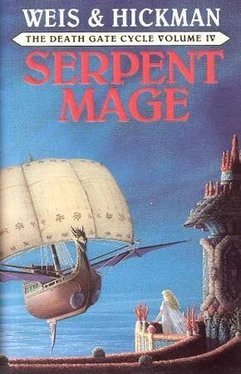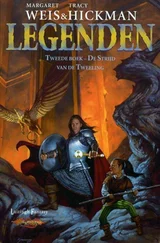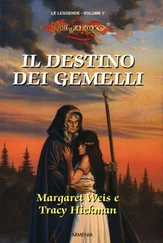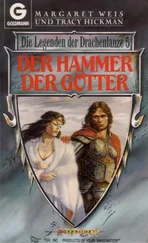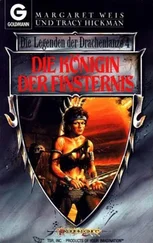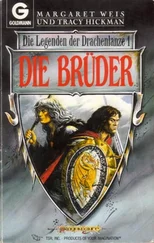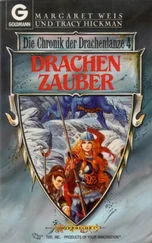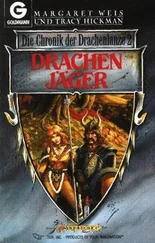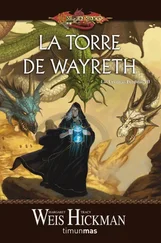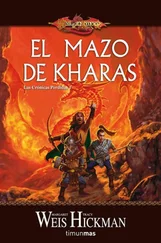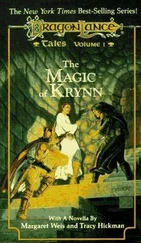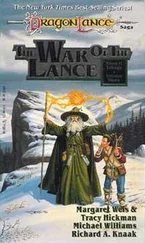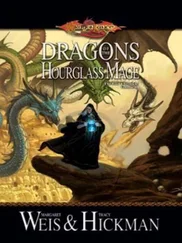Margaret Weis - Serpent Mage
Здесь есть возможность читать онлайн «Margaret Weis - Serpent Mage» весь текст электронной книги совершенно бесплатно (целиком полную версию без сокращений). В некоторых случаях можно слушать аудио, скачать через торрент в формате fb2 и присутствует краткое содержание. Жанр: Фэнтези, на английском языке. Описание произведения, (предисловие) а так же отзывы посетителей доступны на портале библиотеки ЛибКат.
- Название:Serpent Mage
- Автор:
- Жанр:
- Год:неизвестен
- ISBN:нет данных
- Рейтинг книги:5 / 5. Голосов: 1
-
Избранное:Добавить в избранное
- Отзывы:
-
Ваша оценка:
- 100
- 1
- 2
- 3
- 4
- 5
Serpent Mage: краткое содержание, описание и аннотация
Предлагаем к чтению аннотацию, описание, краткое содержание или предисловие (зависит от того, что написал сам автор книги «Serpent Mage»). Если вы не нашли необходимую информацию о книге — напишите в комментариях, мы постараемся отыскать её.
Serpent Mage — читать онлайн бесплатно полную книгу (весь текст) целиком
Ниже представлен текст книги, разбитый по страницам. Система сохранения места последней прочитанной страницы, позволяет с удобством читать онлайн бесплатно книгу «Serpent Mage», без необходимости каждый раз заново искать на чём Вы остановились. Поставьте закладку, и сможете в любой момент перейти на страницу, на которой закончили чтение.
Интервал:
Закладка:
According to Alake, this is the explanation the dolphins offered:
“Chelestra is a globe of water existing in the vastness of space. Its exterior, facing onto the frigid darkness of the Nothing, is made of ice, fathoms thick. Its interior, comprised of the Goodsea, is warmed by the seasun, a star whose flames are so extraordinarily hot that the water of the Goodsea cannot extinguish them. The seasun warms the water surrounding it, melts the ice, and brings life to the seamoons—small planets, designed by the Creators of Chelestra for habitation.”
We dwarves were able to provide the humans with information concerning the seamoons themselves, information gleaned from long Times tunneling and delving into the sphere’s interior. The spheres are a shell of rock with a hot interior comprised of various chemicals. The chemicals react with the rays of the seasun and produce breathable air that surrounds the seamoons in a bubble. The seasun is absolutely required to maintain life.
The Phondrans concluded that, in approximately four hundred cycles’ time, the seasun would leave the seamoons far behind. The longnight would arrive, the Goodsea would freeze, and so would anyone left on Phondra, Gargan, and Elmas.
“When the seasun drifts away,” reported the dolphins, who had witnessed this phenomenon firsthand, “the Goodsea turns to ice that slowly encases the seamoons. But such is the magical nature of these moons that most vegetable and some animal life on them remains alive, merely frozen. When the seasun returns, the moons thaw out and are once more habitable.” I remember hearing Dumaka of Phondra, chieftain of his people, relating the dolphins’ information concerning the seamoons to the first emergency meeting of the royal families of Elmas, Phondra, and Gargan, the meeting that took place when we first heard about the seasun drifting off and leaving us. That meeting was held on Phondra, in the big longhouse where the humans hold all their ceremonies. We three girls were hiding in the bushes outside, eavesdropping, as usual. (We were accustomed to spying on our parents shamelessly. We’d been doing it since we were little.)
“Bah! What does a fish know?" [16] Humans and elves claim that the dolphin is not a fish, but a species similar to themselves, because dolphins give birth to their young the same way they do. Dwarves have no use for such a nonsensical notion. Anything that swims like a fish is a fish, according to dwarves.
my father demanded scornfully. He never took to the notion of talking to dolphins.
“I find the idea of being frozen extremely romantic,” stated Eliason, the elven king. “Imagine—sleeping away the centuries, then wakening to a new era.” His wife had just recently died. I suppose he found the thought of dreamless, painless sleep comforting.
My mother told me later she had a mental image of hundreds of dwarves, thawing out in a new era, their beards dripping all over the rugs. It didn’t sound romantic to her at all. It sounded messy.
Dumaka of Phondra pointed out to the elves that while the idea of being frozen and coming back to life several thousand cycles later might indeed sound romantic, the freezing process itself had definite and painful drawbacks. And how could any of us be certain we would actually return to life?
“After all, we have only the word of a fish on that,” my father stated, and his pronouncement brought general agreement.
The dolphins had brought news that a new seamoon, a much larger moon than any of ours, had just recently thawed out. The dolphins were only now beginning to inspect it, but they thought it would be a perfect place for us to live. It was Dumaka’s proposal that we would build a fleet of sun-chasers, set off in pursuit of the seasun, find this new seamoon as did the ancients. Eliason was somewhat taken aback by the terms build and pursue, which implied a considerable amount of activity, but he wasn’t opposed to the idea. Elves are rarely opposed to anything; opposition takes too much energy. In the same way, they are rarely in favor of anything, either. The Elmas are content to take life as it comes and adapt to it. Humans are the ones who are forever wanting to change and alter and tinker and fix and make better. As for us dwarves, as long as we get paid, nothing else matters.
The Phondrans and the Elmas agreed to finance the sun-chasers. We Gargan were to build them. The humans would supply the lumber. The elves would supply the magic that would be needed to operate the sun-chasers; the Elmas being clever with mechanical magics. (Anything to save themselves physical labor!) And, with typical dwarven efficiency, the sun-chasers had been built and built well.
“But now,” I heard my father say with a sigh, “it has all been for naught. The sun-chasers are destroyed.”
This was the second emergency meeting of the royal families, called by my father. This time, we were meeting, as I said, on Elmas.
We girls had been left in Sabia’s room to “visit” with each other. Instead, immediately on our parents’ departure, we hastened to find a vantage point from which we could, as usual, listen in on their discussions. Our parents were seated on a terrace facing out over the Goodsea. We discovered a small room (a new one) that had opened up above the terrace. Alake used her magic to enlarge an opening through which we could both see and hear clearly. We crowded as near this new window as possible, being careful to keep in the shadows to avoid being seen.
My father went on to describe the serpents’ attack on the submersibles.
“The sun-chasers were all destroyed?” whispered Sabia, as wide-eyed as an elf, with their almond-shaped eyes, can get.
Poor Sabia. Her father never told her anything. Elven daughters lead such sheltered lives. My father always discussed all his plans with both me and my mother.
“Hush!” Alake scolded, trying to hear.
“I’ll tell you later,” I promised, squeezing Sabia’s hand to keep her quiet.
“There’s no possible way to fix them, Yngvar?” Dumaka was asking.
“Not unless those wizards of yours can turn splinters into solid boards again,” my father growled.
He spoke sarcastically; dwarves have little tolerance for magic of any sort, considering most of it trickery, though they are hard-pressed to explain how it works. But I could tell that he was secretly hopeful the humans would come up with the solution.
The Phondran chief said nothing in response, however. A bad sign. Usually the humans are quick to claim their magic can solve any problem. Peeping from over the top of the window ledge, I saw that Dumaka’s face was troubled. My father heaved another sigh, and shifted his bulk uncomfortably in his chair. I sympathized with him. Elven chairs are made for slender elven buttocks.
“I’m sorry, my friend.” My father stroked his beard, a sure sign that he was upset. “I didn’t mean to bark at you. Those blasted beasts have got us by the side whiskers, though, and what we do now is beyond this dwarf to figure out.”
“I think you’re worried about nothing,” said Eliason, with a languid wave of his hand. “You sailed to Elmas in perfect safety. Perhaps these serpents got it into their snakey heads that the sun-chasers were some sort of threat to them, and, once they smashed them to bits, they felt better about the whole thing and departed, never to bother us again.”
“ ‘Masters of the Sea,’ they called themselves,” my father reminded them, his black eyes glistening. “And they meant it. We sailed here by their permission. I’m as certain of that as if I’d heard them give it me. And they were watching. I felt their green-red eyes upon me the whole way.”
“Yes, I think you’re right.”
Dumaka stood up abruptly, walked over to a low wall of coral, and stood gazing down into the shining depths of the calm and placid Goodsea. Was it my imagination, or did I see now upon its surface a trace of shimmering oil?
Читать дальшеИнтервал:
Закладка:
Похожие книги на «Serpent Mage»
Представляем Вашему вниманию похожие книги на «Serpent Mage» списком для выбора. Мы отобрали схожую по названию и смыслу литературу в надежде предоставить читателям больше вариантов отыскать новые, интересные, ещё непрочитанные произведения.
Обсуждение, отзывы о книге «Serpent Mage» и просто собственные мнения читателей. Оставьте ваши комментарии, напишите, что Вы думаете о произведении, его смысле или главных героях. Укажите что конкретно понравилось, а что нет, и почему Вы так считаете.
